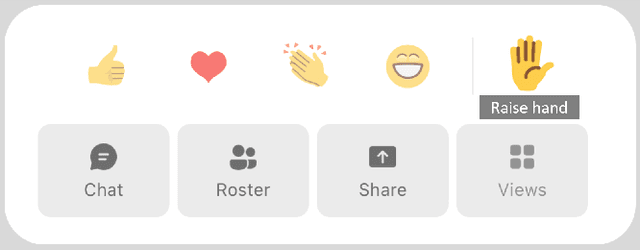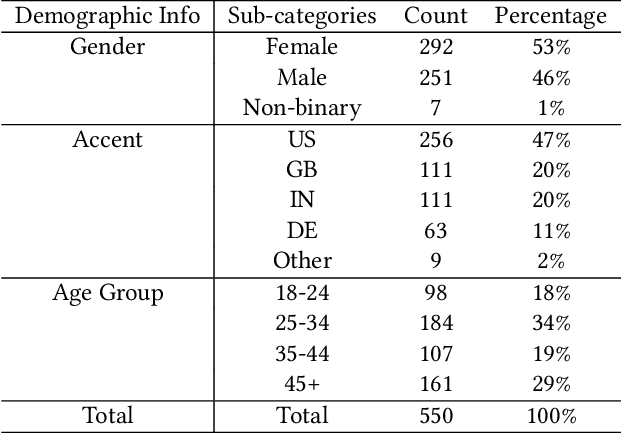Improving Meeting Inclusiveness using Speech Interruption Analysis
Paper and Code
Apr 05, 2023



Meetings are a pervasive method of communication within all types of companies and organizations, and using remote collaboration systems to conduct meetings has increased dramatically since the COVID-19 pandemic. However, not all meetings are inclusive, especially in terms of the participation rates among attendees. In a recent large-scale survey conducted at Microsoft, the top suggestion given by meeting participants for improving inclusiveness is to improve the ability of remote participants to interrupt and acquire the floor during meetings. We show that the use of the virtual raise hand (VRH) feature can lead to an increase in predicted meeting inclusiveness at Microsoft. One challenge is that VRH is used in less than 1% of all meetings. In order to drive adoption of its usage to improve inclusiveness (and participation), we present a machine learning-based system that predicts when a meeting participant attempts to obtain the floor, but fails to interrupt (termed a `failed interruption'). This prediction can be used to nudge the user to raise their virtual hand within the meeting. We believe this is the first failed speech interruption detector, and the performance on a realistic test set has an area under curve (AUC) of 0.95 with a true positive rate (TPR) of 50% at a false positive rate (FPR) of <1%. To our knowledge, this is also the first dataset of interruption categories (including the failed interruption category) for remote meetings. Finally, we believe this is the first such system designed to improve meeting inclusiveness through speech interruption analysis and active intervention.
 Add to Chrome
Add to Chrome Add to Firefox
Add to Firefox Add to Edge
Add to Edge